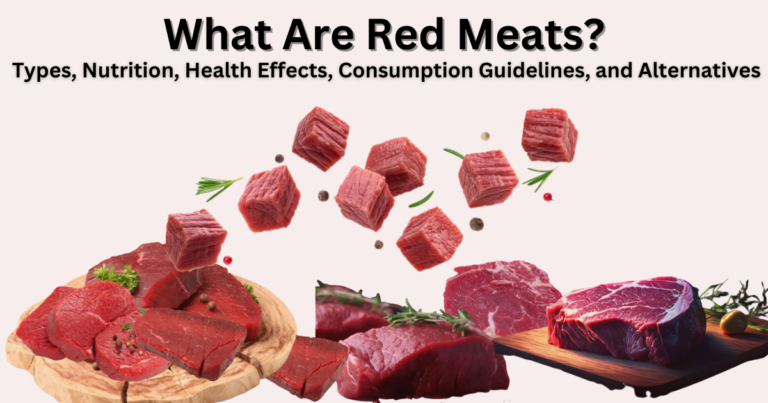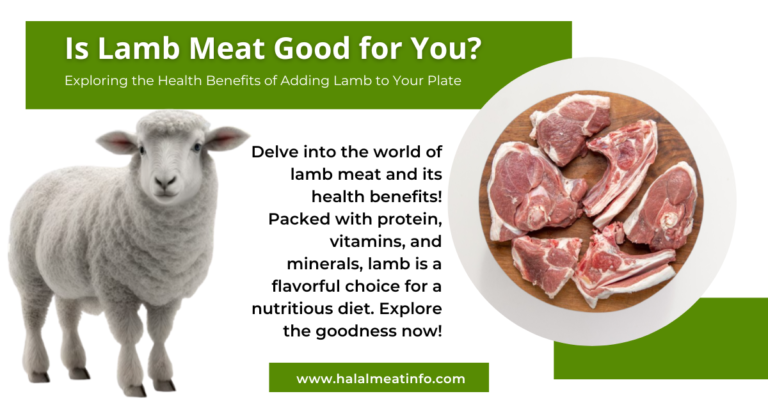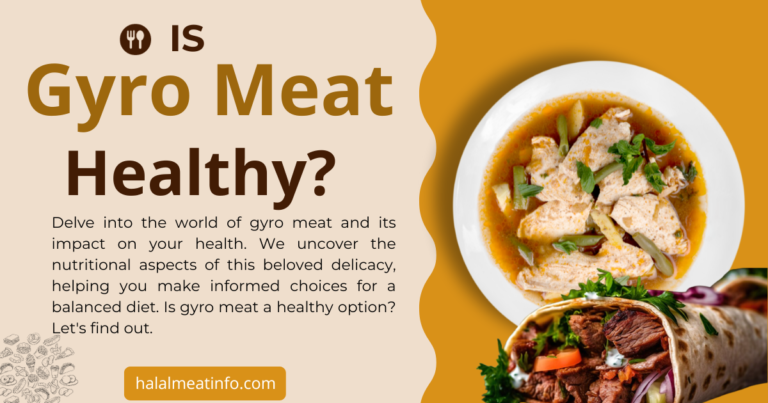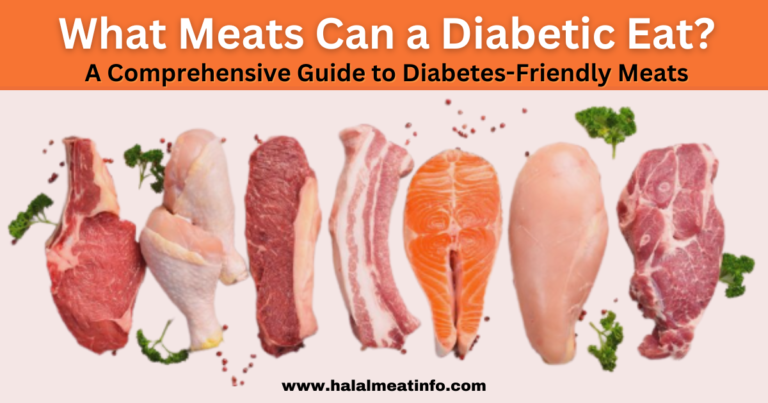Top 12 Best Meat for Weight Loss: A Definitive Guide
When it comes choosing meats for weight loss, choosing the right foods is crucial. Meat, compared to other options, is an especially good way to get protein. In this comprehensive guide, we will explore the role of meat in a weight loss diet, discuss the best meat choices, and provide tips on incorporating meat into a balanced eating plan.

Understanding Meat and Weight Loss
The Role of Meat in a Weight Loss Diet
Meat’s high protein content makes it an essential part of any diet designed to promote weight loss. Getting enough protein in your diet might help you feel satisfied for longer and curb cravings. Protein also has a greater thermic impact than carbs and lipids, indicating that more energy is expended by the body as a result of digesting and absorbing the protein.
Protein’s Role in Fat Loss
Protein is crucial for weight loss since it encourages the burning of fat while keeping muscle mass intact. Including sufficient protein in your meals can aid in maintaining a healthy metabolism and optimizing body composition.
Nutritional Benefits of Lean Meats
Lean meats, specifically, offer a range of nutritional benefits. They are low in saturated fat and high in protein, making them ideal choices for weight loss. Lean meats are also rich in important nutrients such as iron, zinc, and B vitamins, which support overall health and well-being.
Factors to Consider for Weight Loss
Calorie Content in Different Meat Types
When selecting meats for weight loss, considering their calorie content is crucial. While lean meats are generally lower in calories, it’s important to be mindful of portion sizes and cooking methods to control calorie intake.
Fat Content and Composition in Meat
Choosing meats with lower fat content is advantageous for weight loss. Eating fewer calories and less saturated fat is as simple as selecting lean cuts and removing excess fat from exposed areas.
Protein-to-Fat Ratio in Meat
Examining the protein-to-fat ratio in different meats is another helpful factor to consider. Choosing meats with higher protein content and lower fat content can support weight loss goals.
Lean Meats for Weight Loss
Chicken Breast
Chicken breast is often considered a staple food for individuals aiming to lose weight. Packed with protein and low in fat, chicken breast offers several benefits that support weight loss efforts. Here’s how chicken breast can aid in your weight loss journey:
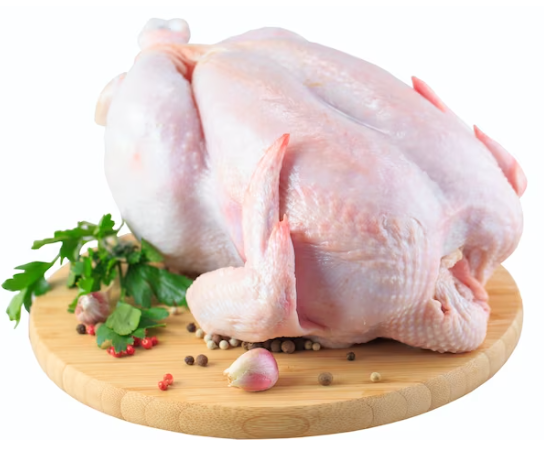
Nutritional Value and Protein Levels:
It has high protein, which promotes feelings of fullness and reduces appetite, which can help control calorie intake and covers essential nutrients such as Vitamins B6, B12, Phosphorus, Niacin, and Selenium. These all are essential for the human body because they support our body functions during weight loss.
Fat and Calories
It has a low profile of fat and calories compared to other meat cuts. By consuming fewer calories from the chicken breast, you can create a calorie deficit essential for weight loss.
Metabolism Boosting
Protein-rich foods like chicken breast have a higher thermic effect on food (TEF). This results in your body expending more energy to digest and metabolize them. As a result, your metabolism gets a temporary boost, leading to increased calorie burning throughout the day.
Cooking Methods
Grilling, baking, or poaching chicken breast without excessive oils or fats can help keep the calorie content low while maintaining its nutritional value. This versatility allows you to enjoy various flavors and meal options while staying on track with your weight loss goals.
Turkey Breast
Turkey breast is a lean and nutritious protein source valuable to your diet. It offers several benefits that can support your weight loss goals.

Nutritional Value and Protein Levels:
Protein is essential for weight loss as it helps control hunger and promotes satiety. Turkey breast is rich in protein, which can keep you feeling full for longer periods, reducing the chances of overeating or snacking on unhealthy foods. It is also helpful in preserving muscle mass during weight loss. Turkey breast contains vitamins B6 and B12, which are involved in energy metabolism, as well as niacin, phosphorus, and selenium. These nutrients are vital to overall health and support our body during weight loss.
Calories and Fat
Turkey breast has naturally low in fat and calories. It has low saturated fat when comparing turkey breast with other animal proteins. It provides significant protein without adding unnecessary calories to your meals. Incorporating turkey breast into your diet allows you to enjoy a satisfying meal while managing calorie intake and promoting heart health through reduced saturated fat consumption.
Low in Saturated Fat
It has low saturated fat when comparing turkey breast meat with other animal proteins. Consuming excessive saturated fat has been linked with heart disease and weight gain. You can reduce your saturated fat intake and promote heart health by opting for turkey breast as a lean protein source.
Source of Tryptophan:
Turkey breast offers tremendous versatility and can be prepared in numerous healthy ways, such as grilling, roasting, or baking, without excessive oils or fats. Adequate serotonin levels can help manage cravings and emotional eating, which are common challenges during weight loss.
Quail Meat for Weight Loss
If you’re looking to lose weight and incorporate a unique protein source into your diet, quail meat can be a nutritious and flavorful option. Quail is a small bird with tender and lean meat, making it suitable for weight loss and overall health.
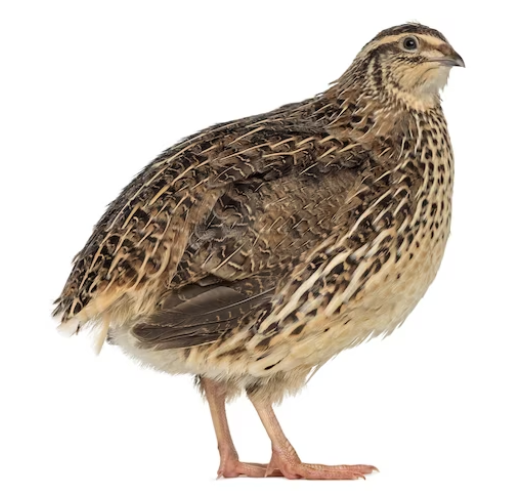
Nutritional Value and Protein Levels:
Quail meat is a rich source of protein, which helps increase satiety, boost metabolism, and maintain muscle mass. It is also a valuable source of essential vitamins, including vitamin B12, vitamin A, and niacin, as well as important minerals like iron and zinc.
Fat and Calories:
Quail meat is naturally lean, making it an excellent choice for individuals aiming to lose weight. It is low in both fat and calories, allowing you to savor a delicious and protein-rich option without adding unnecessary calories or unhealthy fats to your diet. By incorporating quail meat into your meals, you can enjoy a flavorful and nutritious choice that supports your weight loss goals.
Source of Phosphorus:
Quail meat provides a beneficial amount of phosphorus, a crucial mineral that is essential for maintaining strong bones, supporting energy metabolism, and facilitating proper cell function. By incorporating quail meat into your diet, you can help fulfill your body’s daily phosphorus needs and support overall health and well-being.
Versatile and Flavorful:
Quail meat offers a distinct and delightful flavor that can introduce diversity to your weight-loss meals. Its versatility allows for various cooking methods, such as grilling, roasting, or sautéing, giving you the opportunity to explore a range of delicious and fulfilling meal options while effectively managing your weight.
Pheasant for Weight Loss
When it comes to weight loss, incorporating pheasant meat into your diet can offer unique advantages. Pheasant, a game bird known for its flavorful and lean meat, provides several benefits that support your weight loss goals.
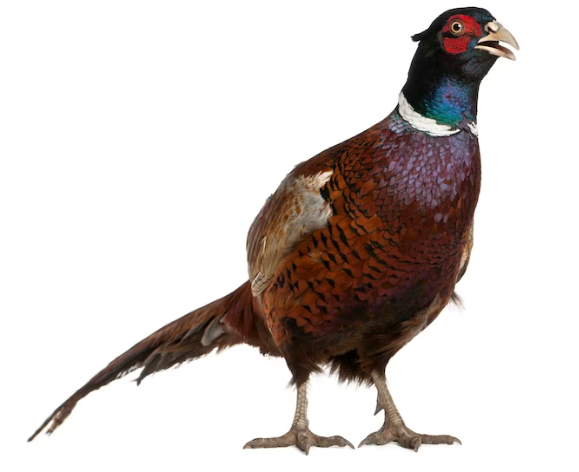
Nutritional Value and Protein Levels:
Pheasant meat is a protein-packed option that offers all the essential amino acids your body requires. Adding pheasant to your diet can enhance feelings of satiety, reducing the chances of overeating or indulging in unhealthy snacks. Pheasant is an excellent source of protein, and its meat is loaded with healthy nutrients like B vitamins, niacin, and selenium. These nutrients are crucial for energy production, brain function, and immune system support.
Calories and Saturated Fat:
Pheasant meat is inherently lean, making it a favorable choice for those seeking weight loss and improved heart health. Compared to conventional meats, pheasant meat contains lower levels of fat and calories. Opting for pheasant as a lean protein source can effectively reduce saturated fat intake, aiding in your weight loss endeavors while promoting overall well-being.
Versatile in Cooking:
Pheasant meat offers a unique flavor and texture distinguishing it from more commonly consumed meats. Its versatility allows for various cooking methods to suit individual preferences, including roasting, grilling, sautéing, and incorporating it into flavorful stews and stir-fries. By exploring different culinary techniques and flavor combinations, you can relish in delightful and nourishing meals while integrating pheasant into your weight loss regimen.
Ostrich Meats for Weight Loss
When it comes to weight loss, ostrich meat can be a healthy and nutritious addition to your diet. Ostrich meat is a distinct and lean protein option that provides numerous advantages to aid in achieving your weight loss objectives.

Nutritional Value and Protein Levels:
Ostrich meat is abundant in protein, supplying your body with all the essential amino acids required. Additionally, it serves as a valuable source of essential vitamins, including vitamins B12, E, and niacin, along with important minerals such as iron and zinc. These nutrients play vital roles in energy generation, immune system functioning, and the maintenance of cellular well-being.
Fat and Calories:
Ostrich meat is a lean alternative to beef, pork, or chicken, as it contains considerably lower levels of fat and calories. By including ostrich meat in your meals, you can relish a protein-rich option that doesn’t contribute excessive fat or calories to your diet.
Versatile in Cooking:
Ostrich meat offers versatility in the kitchen and can be cooked according to your personal taste preferences. It is versatile and can be prepared in different ways, such as grilling, roasting, stir-frying, or incorporating it into various dishes like stews and salads. By exploring different cooking methods and experimenting with flavors, you can savor delicious and nutritious meals while incorporating ostrich meat into your weight loss diet.
Duck for Weight Loss
Duck is known for its rich flavor and higher fat content; there are ways to include it in a weight loss plan. By making conscious decisions and controlling your portion sizes, you can incorporate duck into your meals as a flavorful and nutritious choice.
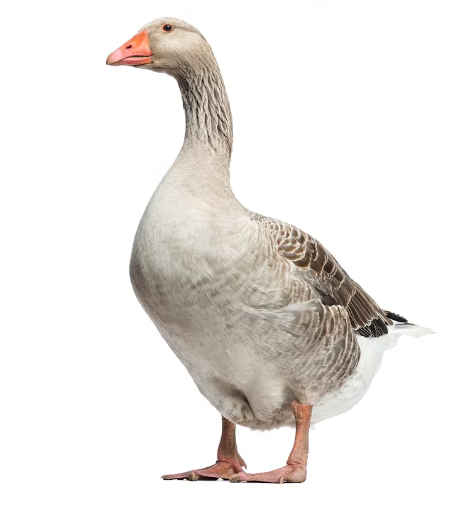
Nutritional Value and Protein Levels:
Duck meat is a beneficial protein source that aids in promoting satiety, reducing hunger cravings, and preserving lean muscle mass. It is also rich in essential nutrients like iron, selenium, zinc, and B vitamins, which support metabolism, energy production, and immune function, contributing to overall health and well-being.
Portion Control:
A crucial factor in including a duck in a weight loss diet is practicing portion control. As duck meat can have a higher fat content compared to leaner meats, it’s important to be mindful of serving sizes. Choosing skinless cuts of duck and removing any visible fat before cooking can help manage your calorie intake. By controlling your portion sizes, you can still savor the taste and advantages of the duck while supporting your weight loss efforts.
Cooking Methods:
Opting for healthier cooking techniques can effectively lower the fat content in ducks. Grilling, roasting, or baking the duck helps to reduce excess fat as it drips away while cooking. It’s best to avoid frying or using excessive oils as they can add unnecessary calories. To create a well-balanced and satisfying meal, pair duck meat with an abundance of vegetables, whole grains, and fiber-rich foods. This combination not only helps manage your calorie intake but also enhances the nutritional value of your meal.
Fish (Salmon, Tuna, and Cod) for Weight Loss
Incorporating fish into your diet, such as salmon, tuna, and cod, can be highly beneficial for weight loss. These types of fish offer several advantages that support your weight management goals.

Nutritional Value and Protein Levels:
Fish like Salmon, tuna, and cod are rich sources of high-level protein, which controls cravings and prevents overeating. They are also excellent vitamin D, B12, Selenium, and Iodine sources. These nutrients play a significant role in different body functions. These proteins and fish nutrition also help boost the metabolism and energy level for successful weight loss.
Calories and Fats:
Fish, such as tuna and cod, are excellent options for losing weight due to their low-calorie content. Opting for fish as a protein source instead of higher-calorie alternatives enables you to establish a calorie deficit, which is crucial for weight loss. Additionally, fish is considered a lean protein, containing less fat compared to other meat sources. Incorporating lean proteins like fish into your meals not only helps to reduce overall calorie intake but also provides the necessary protein for maintaining and repairing muscles.
Rich in Omega-3 Fatty Acids:
Salmon, tuna, and cod are excellent sources of omega-3 fatty acids, such as EPA and DHA, which have been shown to support weight loss efforts. These fatty acids help regulate appetite, reduce inflammation, and promote fat metabolism, which can contribute to improved weight management.
Versatile and Easy to Prepare:
Salmon, tuna, and cod are versatile fish that can be prepared in various healthy and delicious ways. They cook well without added oils or fats when grilled, roasted, broiled, or steamed. High-quality protein can be found in abundance in grass-fed beef. This adaptability allows you to savor delicious and fulfilling meals while managing your calorie intake effectively.
Grass-Fed Beef
If you want to take your weight loss plan up a notch, consider adding grass-fed beef into the mix. Selecting for grass-fed beef instead of conventionally raised beef is a smart choice when it comes to weight loss. Along with several benefits, it offers unique qualities that can support your weight loss goals.

Nutritional Value and Protein Levels:
Protein plays a crucial role in weight loss by helping to regulate hunger, promote muscle maintenance, and enhance feelings of fullness. Grass-fed beef is a great way to get protein of a good quality. It has all of the important amino acids that a person’s body needs. Grass-fed beef covers vital nutrients like zinc, iron, Omega 3, conjugated linoleic acid (CLA), vitamin B12, and E.
Calories and Fats:
Grass-fed beef is known for its leanness, as it generally contains lower levels of total fat and fewer calories compared to other types of beef. Choosing lean cuts, such as sirloin or tenderloin, can help minimize calorie intake while still enjoying the benefits of beef.
Hormones and Antibiotics:
Most grass-fed beef comes from animals that were raised without any hormones or drugs. This can benefit weight loss as it reduces the risk of potential exposure to these substances. While the exact influence of added hormones and antibiotics on weight loss is still debatable, opting for grass-fed beef offers a more natural and potentially healthier option.
Improved Fatty Acid Profile:
Grass-fed beef possesses elevated levels of beneficial omega-3 fatty acids, linked to numerous health advantages, including potential support for weight loss. These fatty acids reduce inflammation, improve insulin sensitivity, and foster a healthy metabolism. These are also helpful in reducing cravings and discouraging indulgence in unhealthy snacks, thereby supporting adherence to a calorie-controlled diet.
Rabbit Meat for Weight Loss
Rabbit meat can be a nutritious and lean protein option to consider. While not as commonly consumed as other meats, rabbit offers several benefits that can support your weight loss goals.

Nutritional Value and Protein Levels:
Rabbit meat is highly nutritious and contains all the key amino acids your body requires as a great source of protein. Adding rabbit meat to your diet can help you feel satiated and reduce the chances of overeating or reaching for unhealthy snacks. Moreover, rabbit meat is rich in essential vitamins like B12, zinc, niacin, and selenium, as well as minerals such as iron and phosphorus. These nutrients play a vital role in energy metabolism, the production of red blood cells, and the proper functioning of the immune system.
Calories and Fats:
Rabbit meat is lean and nutritious, naturally low in fat and calories. It offers much protein without contributing excessive calories to your diet. Unlike other meats, rabbit meat is also low in saturated fat, which is associated with weight gain and an increased risk of heart disease. Opting for rabbit meat as a lean protein option can help you reduce saturated fat intake and promote heart health.
Versatile in Cooking:
Rabbit meat offers versatility in cooking, allowing you to prepare it according to your preferences. It can be grilled, roasted, stewed, or sautéed with a variety of herbs and spices to enhance its flavor. This culinary flexibility enables you to enjoy a wide range of delicious meals while including rabbit meat in your weight-loss diet.
Sustainable and Environmentally Friendly:
Choosing rabbit meat as a protein source supports a balanced and environmentally conscious diet. Rabbits are efficient converters of feed, requiring less food and water compared to larger animals. This sustainability aspect, coupled with their smaller ecological footprint, makes rabbit meat a responsible choice that promotes environmental stewardship and reduces resource strain.
Venison Meats for Weight Loss
Regarding weight loss, incorporating venison into your diet can be a beneficial choice. Venison, which refers to the meat of deer, offers several advantages that support your weight management goals with unique flavor.
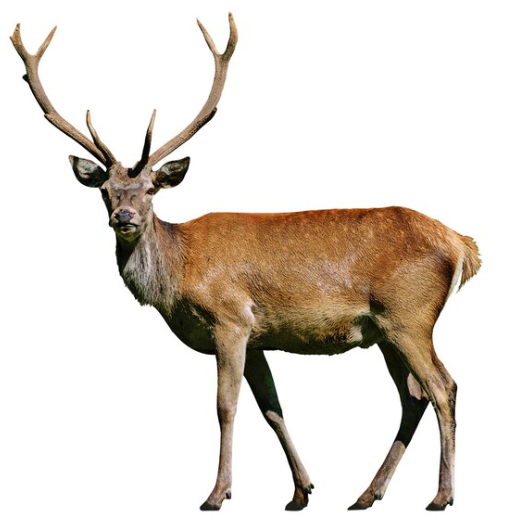
Nutritional Value and Protein Levels:
Venison meat serves as a nutritious and lean protein source that aids in promoting satiety and maintaining a well-balanced meal plan. In addition to its high protein content, venison is rich in essential nutrients, including iron, zinc, and B vitamins, pivotal for energy metabolism, immune function, and red blood cell production.
Fat and Calories:
Venison is a lean and nutritious meat that naturally has low levels of fat and calories. This quality make it an ideal choice for individuals looking to shed some pounds. By opting for venison instead of higher-calorie meats, you can create a calorie deficit and enhance your weight loss journey more effectively.
Hormones and Antibiotics:
Venison is sourced from wild or free-range deer that graze on natural vegetation, making it a meat option that is often free from added hormones and antibiotics commonly found in conventionally raised meats. By choosing venison, you can opt for a more natural and potentially healthier choice to support your weight loss goals.
Versatile in Cooking:
Venison is a versatile meat that offers a range of cooking options to cater to your personal preferences. You can grill it, roast it, sauté it, or use it in stews and stir-fries, allowing for diverse and delicious meals. By exploring different cooking techniques and combining flavors, you can savor the taste of venison while maintaining a healthy and fulfilling weight loss diet.
Lean Lamb
Lean lamb is often associated with higher fat content; opting for lean cuts and practicing portion control can make it suitable for your weight loss goals.
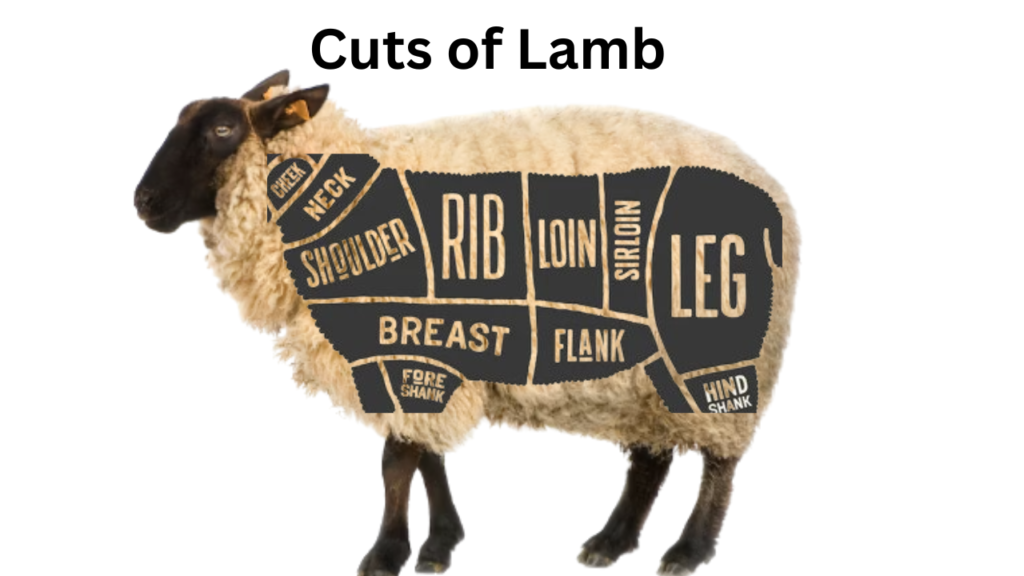
Nutritional Value and Protein Levels:
Lean lamb is a protein powerhouse, offering high-quality protein that supports your dietary requirements. It also provides essential nutrients like vitamin B12, zinc, iron, and selenium, which are vital for energy production, immune function, and overall well-being. By including lean lamb in your weight loss plan, you can ensure that your body receives the necessary nourishment it needs to thrive.
Fats and Calories
Even in its lean form, lamb contains a small amount of healthy fats that add flavor and contribute to feelings of fullness. However, because of their high caloric content, these fats should be used sparingly. To create a well-rounded and satisfying weight-loss meal, you can pair lean lamb with nutrient-rich vegetables, whole grains, and fiber-rich foods. By incorporating this combination into your diet, you can achieve a well-rounded intake of essential nutrients while managing your calorie consumption.
Versatility in Cooking:
You can prepare lean lamb in a variety of ways to match your personal tastes. You can prepare lean lamb in various ways, such as grilling, roasting, stewing, or using it in stir-fries. To create a balanced plate, make sure to incorporate ample servings of vegetables, whole grains, and lean proteins. Choose cooking methods that require minimal added fats and oils to fully enjoy the advantages of lean lamb while managing your overall calorie intake effectively.
Plant-Based Meat Alternatives
Introduction to Plant-Based Meat Substitutes
For those following a vegetarian or vegan lifestyle, or simply looking to reduce meat consumption, plant-based meat substitutes can be viable options. These alternatives offer protein-rich and lower-calorie alternatives to traditional meats.
Tofu and Tempeh
Tofu and tempeh are plant-based protein sources commonly used as meat substitutes. Because of their minimal fat and high protein content, they are healthy options for dieters.
High Protein and Low-Fat Content
Both tofu and tempeh provide a significant amount of protein while containing minimal fat. They’re adaptable and come out tasting like meat no matter how you cook them.
Versatility in Cooking and Meal Preparation
Tofu and tempeh can be grilled, stir-fried, baked, or added to soups and stews. Their versatility allows for a range of creative and satisfying meals that support weight loss goals.
Seitan and Quorn
Seitan and Quorn are additional plant-based meat alternatives that can be beneficial for weight loss. They offer high protein content and low-calorie counts while mimicking the texture and flavor of meat.
High Protein Content and Low-Calorie Count
Seitan and Quorn are rich in protein, providing an excellent option for individuals seeking plant-based protein sources while managing their calorie intake. They can be used as meat substitutes in various dishes.
Taste and Texture Very Like Meat
One of the advantages of Seitan and Quorn is their ability to mimic the texture and flavor of meat. This makes them appealing options for individuals transitioning to a plant-based diet or looking for alternatives to traditional meats.
Incorporating Lean Meats into a Weight Loss Diet:
Proper Portion Control and Balanced Meals
While lean meats offer numerous benefits for weight loss, it is essential to practice portion control and combine them with other nutritious foods for balanced meals.
Importance of Moderation and Portion Sizes
To maintain a calorie deficit for weight loss, it’s crucial to consume lean meats in moderation and be mindful of portion sizes. Aim for recommended serving sizes and pair them with an array of vegetables and whole grains.
Blending Healthy Carbs, Healthy Fats, and Healthy Proteins
Pairing lean meats with vegetables and whole grains creates balanced and nutrient-dense meals. Vegetables provide fiber and complex carbohydrates, promoting satiety and supporting overall health.
Healthy Cooking Methods for Lean Meats
The cooking method used for lean meats can impact their overall nutritional profile. By choosing healthy ways to cook, you can cut down on extra fats and calories while keeping the natural flavors.
Grilling, Baking, and Broiling for Reduced Fat Intake
Grilling, baking, and broiling are excellent cooking methods for lean meats as they require minimal added fats and allow excess fat to drip away. These procedures preserve meat flavors and textures.
Using Herbs, Spices, and Healthy Marinades for Flavor
Herbs, spices, and healthy marinades can be used to flavor lean meats without adding extra calories or bad additives. These add depth and variety to your meals while keeping them nutritious.
Bottom Line
Consulting with a Registered Dietitian or Nutritionist for Personalized Guidance
For personalized guidance tailored to your specific needs and goals. It is recommended to consult with a registered dietitian or nutritionist. They can provide expert advice, create a customized meal plan, and help you make informed choices regarding lean meats and overall nutrition.
Remember, achieving and maintaining weight loss involves a holistic approach that combines a balanced diet, regular physical activity, and healthy lifestyle habits. By incorporating the best lean meats into your weight loss plan and adopting sustainable habits, you can move closer to your goals while nourishing your body.
Conclusion
In conclusion, it’s critical to make smart decisions about which kind of meat to eat when trying to shed pounds. Incorporating lean meats such as chicken breast, turkey breast, and fish provides high-quality protein while minimizing fat intake. Plant-based meat alternatives like tofu and tempeh offer viable options for individuals following a vegetarian or vegan lifestyle. When preparing meat, opt for healthier cooking methods and control portion sizes. Finally, include meat in a balanced diet alongside vegetables and whole grains to maximize nutritional value. Remember, weight loss is not just about choosing the best meat; it’s about adopting a balanced diet and maintaining a healthy lifestyle. Regular physical activity, sufficient hydration, and overall dietary variety are key factors in achieving sustainable weight loss.
Reference:
- https://pubmed.ncbi.nlm.nih.gov/18517106/
- https://nutritionj.biomedcentral.com/articles/10.1186/1475-2891-9-51
- https://www.ncbi.nlm.nih.gov/pmc/articles/PMC5235953/


